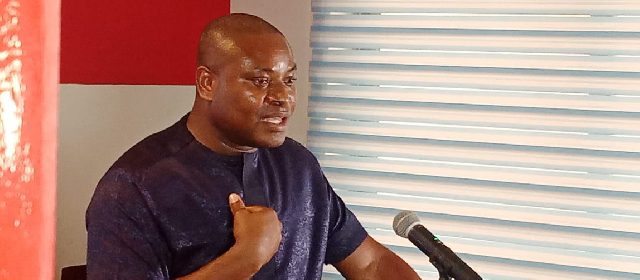The New Patriotic Party (NPP) has pushed back against President John Dramani Mahama’s directive to build a debt buffer, arguing that the mechanism already exists thanks to the Akufo-Addo administration’s fiscal policies.
Richard Ahiagbah, the NPP’s Communications Director, highlighted in a social media post that the so-called “debt buffer” Mahama instructed Finance Minister Dr. Ato Forson to establish is not novel but was institutionalized years ago through the debt service reserve account.
Ahiagbah detailed that the account, established under the Akufo-Addo-Bawumia government, pools funds from Treasury bill auction surpluses, budgeted debt-service allocations, and transfers from the sinking fund to meet debt obligations. He cited its effectiveness in servicing three Domestic Debt Exchange Program (DDEP) coupons—totaling approximately GH₵27 billion—during Akufo-Addo’s tenure, as well as the GH₵6.1 billion coupon authorized for payment by Mahama’s administration in February 2025.
“The directive to ‘build a debt buffer’ is redundant,” Ahiagbah asserted. “This account has been operational for years, proving its capacity to shield Ghana from debt default risks.” His remarks underscore a broader political spat between the NPP and the ruling National Democratic Congress (NDC), with the former accusing Mahama’s government of rebranding existing policies as new initiatives.
The exchange reflects simmering tensions over fiscal accountability in Ghana, which faces a debt crisis despite entering an IMF program and completing a historic domestic debt exchange. Mahama’s call for a buffer—aimed at safeguarding against payment defaults—has been framed by the NPP as an attempt to claim credit for a system already in place.
Ahiagbah’s post also highlights the political calculus at play.
By emphasizing the NPP’s legacy in fiscal management, the party seeks to counter Mahama’s narrative of economic recovery. Yet, critics argue that the debt service reserve account’s efficacy is limited without broader structural reforms, such as curbing reckless borrowing or improving revenue mobilization.
The debate has sparked mixed reactions. While some Ghanaians applaud the NPP for fact-checking Mahama’s claims, others question why the buffer failed to prevent the 2022 debt crisis under Akufo-Addo. Analysts warn that partisan bickering over technicalities risks overshadowing urgent needs, such as transparency in debt management and adherence to IMF-mandated fiscal discipline.
As Ghana navigates post-DDEP recovery, the real test lies not in political point-scoring but in ensuring the buffer’s sustainability. With external borrowing costs soaring and investor confidence fragile, the government must prioritize prudent fiscal policies—regardless of which administration claims ownership. For now, the buffer’s existence may be undeniable, but its long-term impact hinges on political will to avoid the excesses of the past.
- President Commissions 36.5 Million Dollars Hospital In The Tain District
- You Will Not Go Free For Killing An Hard Working MP – Akufo-Addo To MP’s Killer
- I Will Lead You To Victory – Ato Forson Assures NDC Supporters
Visit Our Social Media for More




